With its large, tightly packed, silvery bluish white, mint-scented leaves and outsized, scarlet, pink, or rarely yellow flowers, this shrubby eucalyptus brings show-stopping drama to almost any summer-dry garden. Its features are decisively eucalypt, but its effect, especially at full height and in full bloom, is Alice-in-Wonderland.
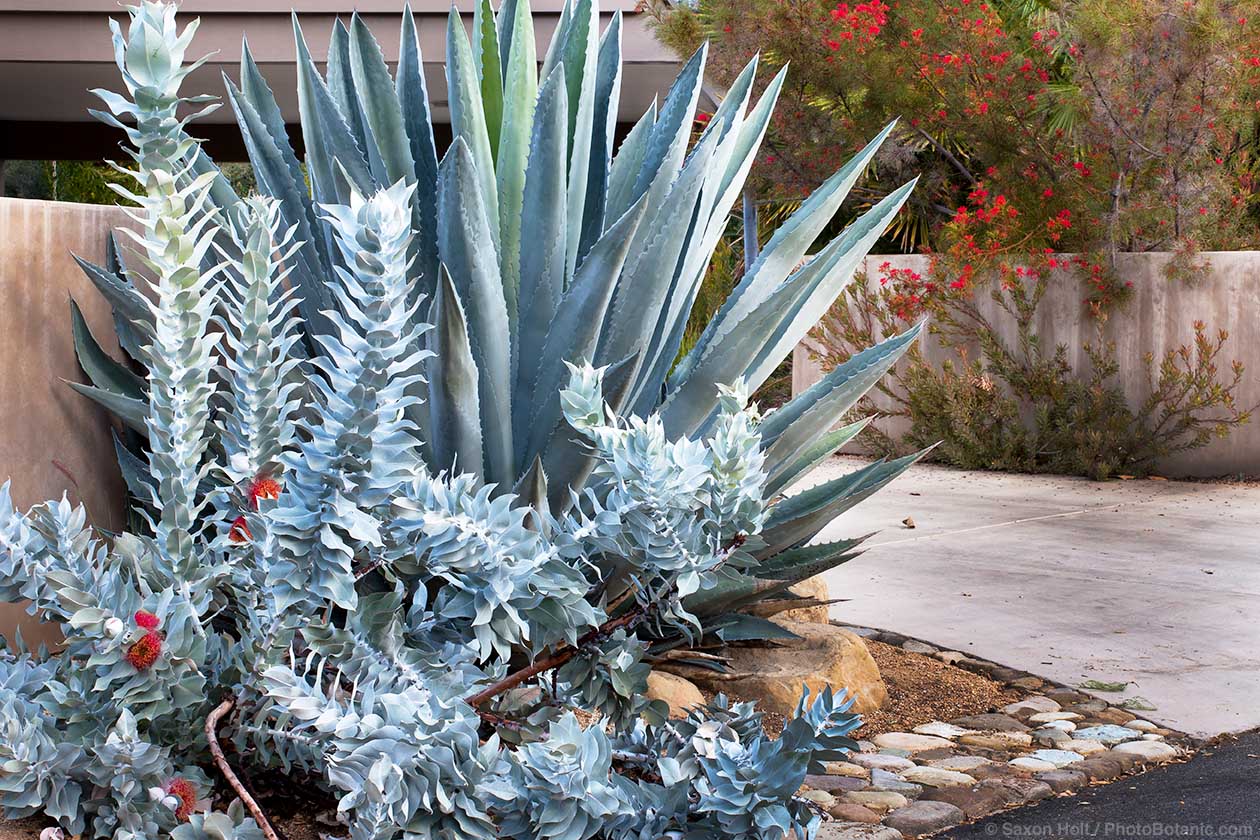
Eucalyptus macrocarpa can be pruned to maintain it at almost any size. Here it combines perfectly with Agave americana.
One of several Australian shrubs called desert mallee, mottlecah can reach eight to ten feet tall and wide, sometimes erratically upright but more often sprawling. Mallees are shrubby eucalypts native primarily to well-drained, sandy soils in semiarid, winter-wet, summer-dry northwestern Victoria, southeastern South Australia, and southern Western Australia. Mottlecah is endemic to Western Australia, some distance inland from the coast.
Mottlecah grows from a resprouting, woody rootstock that sends up multiple new shoots after the plant is cut to the ground. In its native habitat it is adapted to regeneration after wildfire. The long, sinuous stems can be pruned after flowering for a bushier plant.
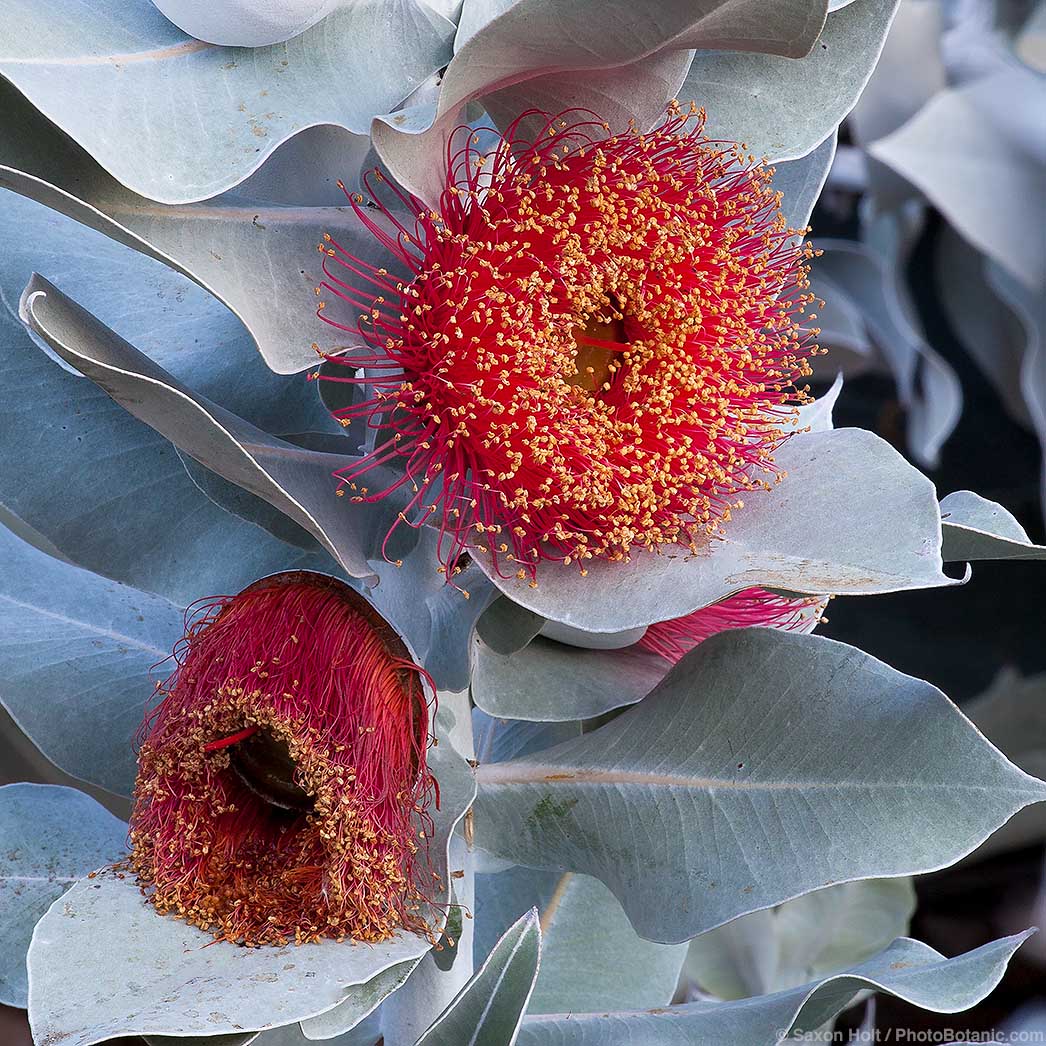
Eucalyptus macrocarpa flowers
Flowering is characteristic of the genus, but so much larger, with gray-white bud caps opening to expose the brushlike arrangement of stamens in early spring to summer and sometimes again in fall. Flowers are followed by powdery, cup-shaped gum nuts typical of Eucalyptus species. Buds, flowers, and fruits are so large that their weight can break branches or bend them to the ground.
This is not a plant you are likely to find in big-box garden centers, but plants are offered at times by specialty nurseries and seeds are commonly available online. Although I have yet to try growing from seed, shallowly sown seed is said to germinate easily and quickly.
Plants may be damaged or killed by hard frosts but may eventually come back from the rootstock. Give this shrub a sunny, well-drained spot and water only to establish or if winter rains fail.


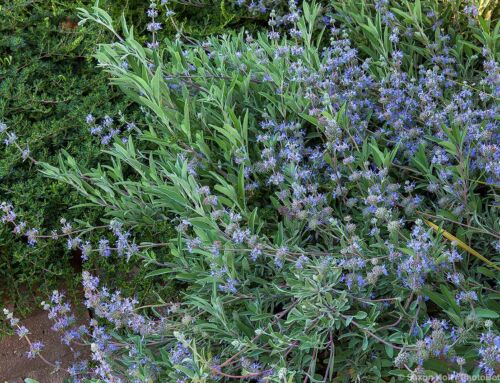
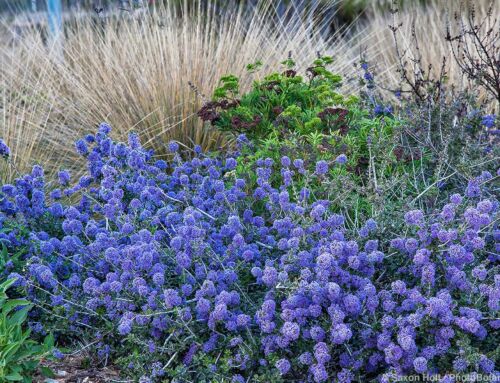
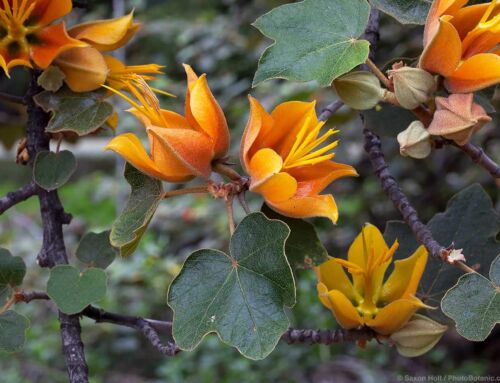
I’m so happy you featured Eucalyptus macrocarpa. I fell in love with it when I first saw it at the Ruth Bancroft Garden, and a couple of years ago I planted one in our own garden. It’s grown quickly and doesn’t need (or want) much water. Definitely one of those plants that people always ask about it when they see it!
I got my plant from Gondwana Flora in Martinez (https://www.gondwanaflora.com/). The Ruth Bancroft Garden Nursery might also carry it.